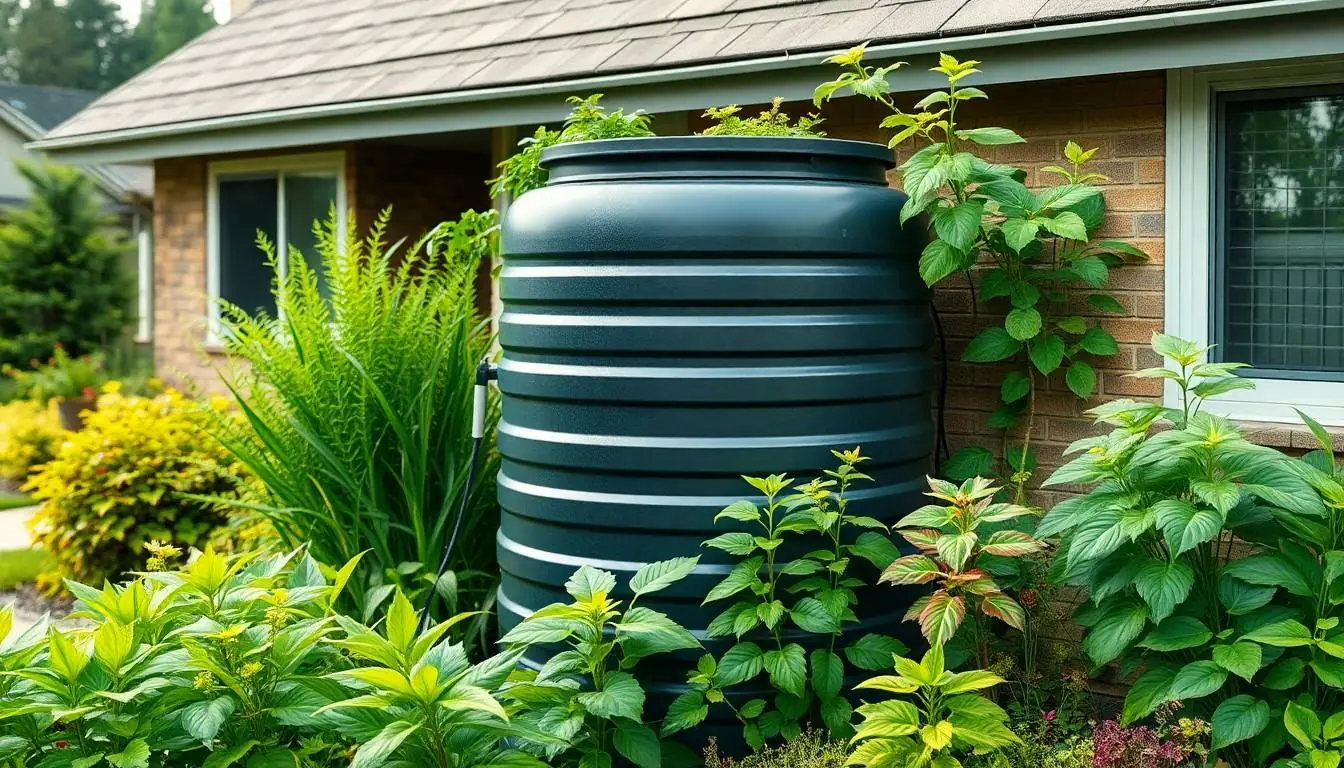Table of Contents
ToggleImagine a world where water isn’t just a thirst quencher but a wellness elixir straight from the sky. Rainwater wellness is the latest trend that’s got everyone buzzing, and it’s not just about catching raindrops in a bucket. It’s about harnessing nature’s finest resource to boost health, beauty, and even your garden’s vitality.
Understanding Rainwater Wellness
Rainwater wellness revolves around the use of collected rainwater to enhance health, beauty, and sustainability. This concept promotes the idea that rainwater offers unique properties beneficial for both people and the environment.
Definition and Concept
Rainwater wellness refers to harnessing rainwater to improve physical well-being and overall quality of life. This practice involves collecting and using rainwater for drinking, bathing, and gardening. As rainwater is naturally soft and free from many chemicals, it holds potential for various wellness applications. Embracing this concept fosters a connection with nature and encourages sustainable living. By adopting rainwater wellness, individuals gain access to a resource that promotes health in everyday routines.
Benefits of Rainwater Wellness
Rainwater wellness provides numerous advantages for personal health and environmental conservation. For instance, using rainwater for drinking can reduce exposure to harmful chemicals commonly found in tap water. Bathing in rainwater can enhance skin health due to its mineral-rich composition. Gardens thrive when irrigated with rainwater, leading to vibrant plant growth while conserving municipal water supplies. Additionally, utilizing rainwater efficiently lowers water bills, promoting economic benefits. By incorporating rainwater wellness, individuals pave the way towards a healthier lifestyle and a more sustainable future.
Historical Context of Rainwater Harvesting

Rainwater harvesting has ancient roots, reflecting diverse cultural practices that prioritize sustainable resource management. This technique played a crucial role in many civilizations throughout history.
Ancient Practices
Civilizations such as the Romans, Greeks, and Aztecs utilized rainwater harvesting for agriculture, domestic use, and ceremonial purposes. Roman aqueducts efficiently collected and transported rainwater, showcasing advanced engineering and a keen understanding of hydrology. In the Americas, the storage of rainwater enabled the Aztecs to cultivate crops in arid regions, ensuring food security. These practices demonstrated an early acknowledgment of the environmental benefits associated with rainwater use.
Modern Adaptations
Contemporary societies increasingly adopt rainwater harvesting techniques, rediscovering their benefits amidst growing concerns about water scarcity. Advances in technology have simplified the collection process. Today, homeowners utilize rain barrels and cisterns, allowing them to capture and store rainwater for various uses, such as irrigation and household tasks. As sustainability becomes a central focus, urban designs now incorporate permeable surfaces and green roofs, further enhancing the efficiency of rainwater management. This revival illustrates a shift towards environmentally conscious decisions that support a sustainable future.
Health Benefits of Rainwater
Rainwater offers numerous health benefits, particularly due to its intrinsic purity and unique mineral content.
Purity and Mineral Content
Rainwater boasts a natural softness and is typically free from harmful chemicals found in municipal water systems. It undergoes minimal processing, which preserves its integrity. This water naturally collects essential minerals like calcium and magnesium. When consumed, these minerals contribute positively to hydration and overall wellness. Users of rainwater often report improvements in skin texture and hydration levels, linking these benefits to the mineral content. In addition, the absence of chlorine and fluoride promotes a cleaner taste and healthier option for drinking and bathing.
Comparative Analysis with Tap Water
Comparing rainwater with tap water highlights significant differences in health and safety. Tap water often contains additives, including chlorine and fluoride, which can pose long-term health risks. Rainwater, on the other hand, remains free from these substances, making it a cleaner alternative. Research reveals that individuals who switch to rainwater experience fewer skin irritations and allergies. Studies also indicate that relying on rainwater can improve digestion and reduce the risk of gastrointestinal issues often linked to contaminants found in tap water. Therefore, choosing rainwater can enhance overall health and well-being.
Sustainable Practices for Rainwater Collection
Harnessing rainwater involves various sustainable practices that encourage efficiency and safety. Every homeowner can benefit from implementing these systems and techniques effectively.
Systems and Techniques
Utilizing rain barrels is a popular method for harvesting rainwater. Often placed beneath downspouts, these containers collect water directly from rooftops. Cisterns represent another effective option, as larger underground or above-ground tanks store more rainwater for extensive use. Employing soaker hoses or irrigation systems attached to these barrels optimizes water usage for gardens and landscaping. Simple filtration systems ensure that collected water remains clean for usage. Accessories such as first-flush diverters prevent contaminants from entering storage tanks, enhancing overall water quality.
Maintenance and Safety Considerations
Regular maintenance is crucial for ensuring the optimal operation of rainwater collection systems. Inspecting gutters and downspouts frequently prevents blockages and maximizes collection. Cleaning rain barrels and cisterns every six months helps to remove debris and algae, which could compromise water quality. Safety measures must also be in place to avoid contamination. Using food-grade materials for storage and covering barrels prevents mosquitoes and debris from entering. Ensuring that any water intended for drinking is adequately filtered and tested ensures that it meets safety standards, mitigating health risks.
Challenges and Considerations
Rainwater wellness presents several challenges and considerations that practitioners must navigate. Attention to legal and regulatory issues is crucial.
Legal and Regulatory Issues
Compliance with local laws often shapes the implementation of rainwater harvesting systems. Some regions impose restrictions on private collection due to concerns over water rights and contamination risks. Regulations may require permits or specific infrastructure assessments. Homeowners should conduct thorough research to ensure their systems comply with local ordinances. Additionally, understanding state-specific guidelines enables smoother installation of rainwater collection systems.
Public Perception and Awareness
Public perception significantly influences the adoption of rainwater wellness practices. Often, misconceptions about safety and quality arise. Many individuals remain unaware of the benefits of collected rainwater compared to treated municipal water. Educating communities about the purity of rainwater and its advantages can foster acceptance. Outreach efforts, such as workshops and informational campaigns, help demystify the practice. Increased awareness encourages individuals to consider rainwater as a viable resource for hydration and gardening, ultimately supporting sustainability efforts.
Embracing rainwater wellness offers a pathway to a healthier lifestyle while promoting sustainability. By harnessing the natural purity of rainwater, individuals can enhance their well-being and reduce reliance on chemical-laden municipal water sources. The benefits extend beyond personal health to include vibrant gardens and lower water bills, making it a win-win for both users and the environment.
As awareness grows and technology advances, more people are likely to adopt rainwater harvesting practices. Overcoming misconceptions and navigating legal considerations will be crucial in fostering a community that values this resource. Ultimately, rainwater wellness stands as a testament to the potential of nature’s gifts in supporting a sustainable future.




